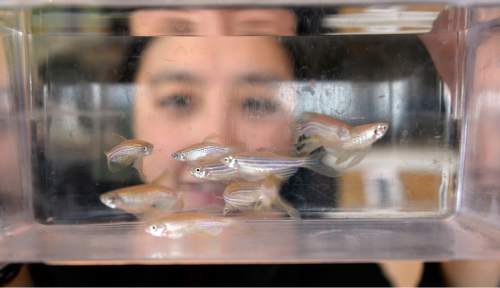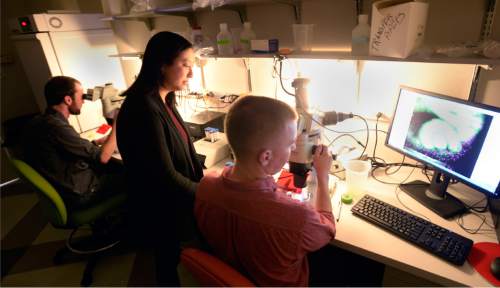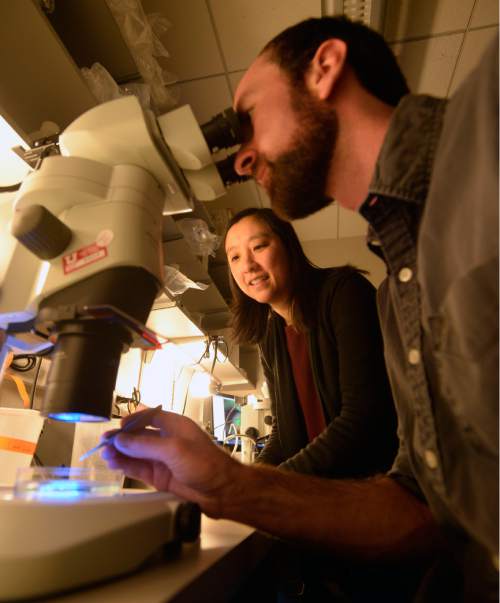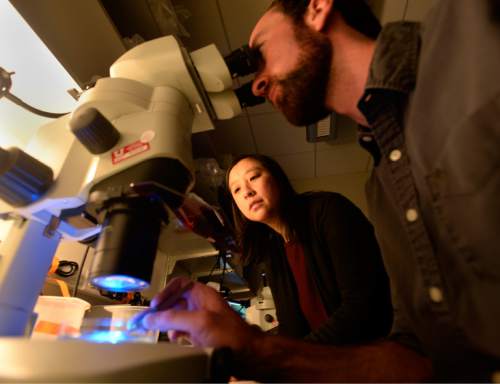This is an archived article that was published on sltrib.com in 2015, and information in the article may be outdated. It is provided only for personal research purposes and may not be reprinted.
Flat federal research money is threatening the future of medicine, University of Utah Senior Vice President for Health Sciences Vivian Lee said Wednesday.
Lee is among two dozen medical school deans nationwide asking Congress to boost their government funding in a policy paper published Wednesday in the journal Science Translational Medicine. She and her counterparts are advocating for pending legislation to increase the federal academic research budget for the next three years by about 4.6 percent.
"It's a security issue," Lee said. "It's very basic for us."
Last year, the U. got more than $257 million in grants. But the school still is smarting from a 5 percent decline in funding from the National Institutes of Health since 2010.
The cuts mean top researchers in Utah and other academic settings are opting to take jobs in such nations as China and India, she said.
"Now they're going back to those countries," Lee said. "They feel like their future in research is more secure there."
Other medical schools represented in the brief include the University of Pittsburgh, New York City's Columbia University, the Dallas-based University of Texas Southwestern and the University of Michigan. They call for steady, long-term funding that is indexed to inflation.
The university medical centers do their part to subsidize federally funded research, forking over 53 cents on each dollar in research support, the group estimates.
But in recent years, newer regulations and fewer clinical reimbursements have constrained their budgets, inhibiting "innovative high-risk science" and creating a "hostile" working environment in laboratories, they wrote.
It "will discourage the next generation from pursuing careers in biomedical research," Robert Alpern, dean of the Yale School of Medicine, said in the statement.
Twitter: @anniebknox









